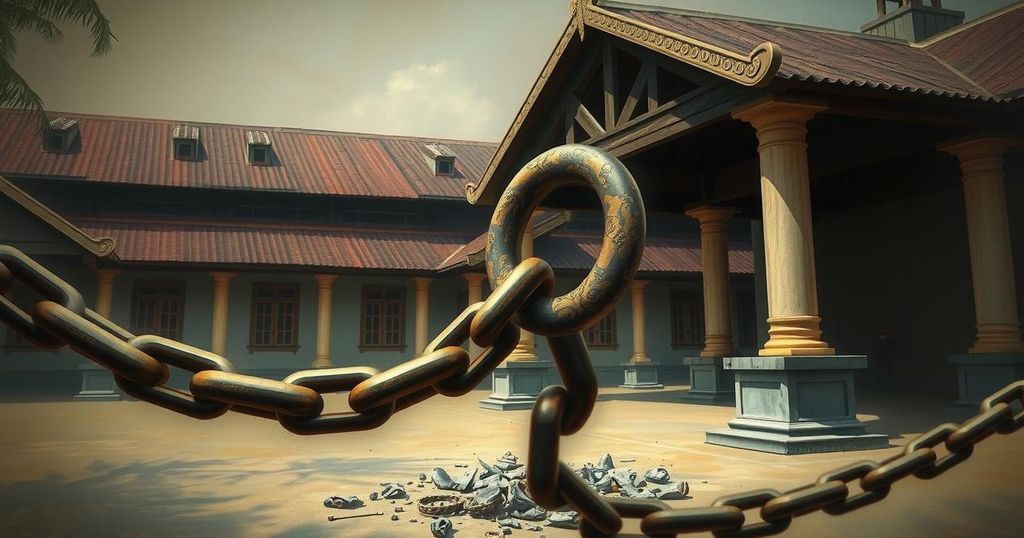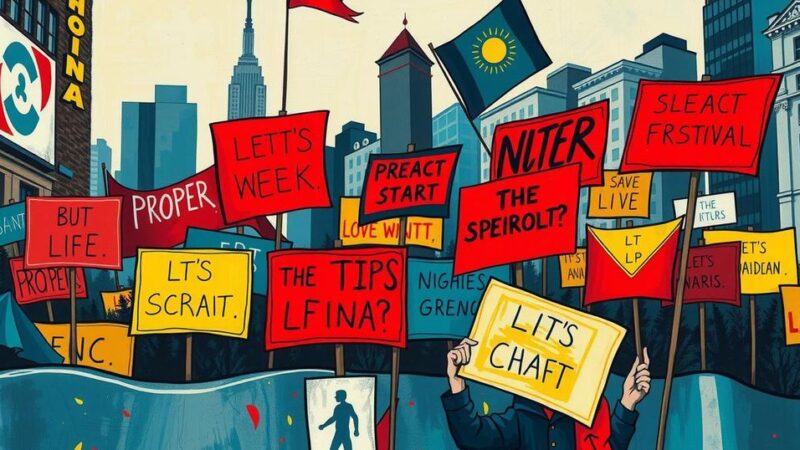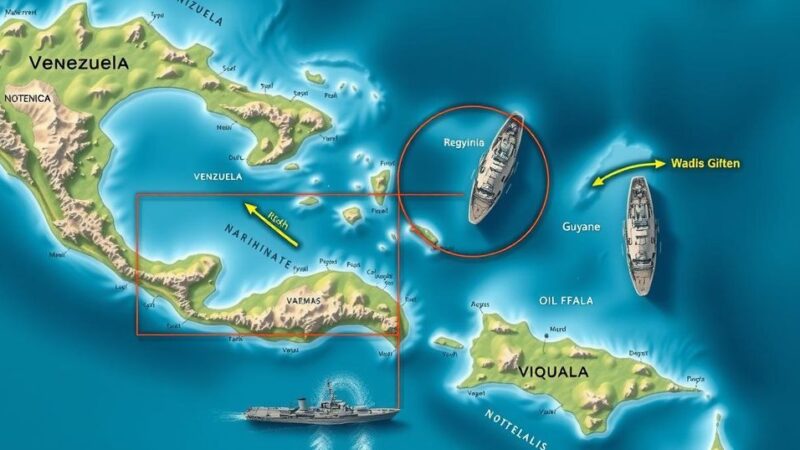Rodrigo Duterte’s arrest for crimes against humanity represents a pivotal moment in Philippine politics, exacerbating the feud between his family and that of current President Marcos Jr. Activists attribute the arrest to the evolving political dynamics, with midterm elections looming and both families vying for power.
Former Philippine President Rodrigo Duterte has been arrested and sent to The Hague to face charges associated with crimes against humanity in connection with his administration’s controversial “war on drugs.” Activists estimate that the violent crackdown has resulted in approximately 30,000 fatalities since 2016. These charges are the culmination of extensive documentation of abuses orchestrated under Duterte’s regime, conducted by activists and victims who faced significant risks.
The surrender of Duterte to international authorities appears influenced by the fractured alliance between his family and that of current President Ferdinand Marcos Jr. Once political allies, the relationship between these dynasties deteriorated following the 2022 elections, where they shared a ticket. Tensions escalated as Vice President Sara Duterte began attacking Marcos Jr publicly, even suggesting the shocking act of disturbing his father’s remains.
Prof. Maria Ela L Atienza from the University of the Philippines indicated that the ongoing rivalry is driven by each family’s desire to secure the presidential candidacy for 2028, framing it as a struggle for survival among their political legacies. Marcos Jr’s stance on the International Criminal Court (ICC) evolved as relations soured, detailing that while they would not cooperate with the ICC, they would adhere to Interpol’s mandates.
Marcos Jr confirmed compliance with Interpol’s commitments shortly after Duterte’s departure, stating, “The arrest that we did today was in compliance with our commitments to Interpol.” Legal experts like Tony La Viña praised the administration’s swift action in executing the arrest warrant effectively, eliminating potential delays from the Supreme Court.
Duterte’s political future appears precarious as he faces a robust challenge for mayor in Davao, particularly as he attempts to maintain influence amid the upcoming midterm elections. With Sara Duterte facing an impending impeachment trial, the family’s political cushion depends on securing their allies in the Senate to stave off any threats to her vice-presidential position and aspirations for the presidency in 2028.
Supporters of Duterte have framed him as a victim of political persecution by the Marcos clan, alleging that he has been unjustly treated. However, this narrative has drawn ironic contrasts from those who suffered under the fatal drug campaign. As Prof. Atienza observed, the use of terms like “people power” and “human rights” by Duterte’s supporters seems disingenuous given their earlier dismissals of such concepts.
The conflict between these two powerful families is expected to intensify, affecting public sentiment significantly. Cleve V Arguelles, a public opinion researcher, emphasized the need for both factions to communicate compelling narratives in order to engage the public effectively, marking a critical time for both the Duterte and Marcos dynasties in retaining their influence.
In conclusion, Rodrigo Duterte’s arrest marks a significant turning point in the political landscape of the Philippines, particularly highlighting the fractured relationship between the Duterte and Marcos families. As tensions rise, both sides are maneuvering to secure their political futures against the backdrop of impending elections and challenges to their influence. The narrative being shaped by these families will play a crucial role in the upcoming months, as the future of their dynasties remains at stake.
Original Source: www.theguardian.com






